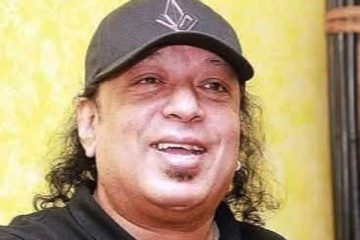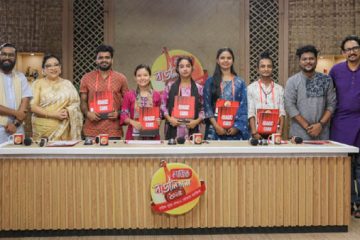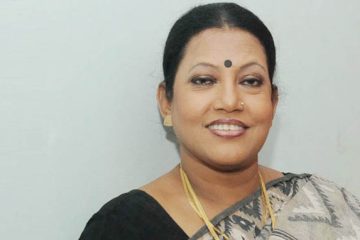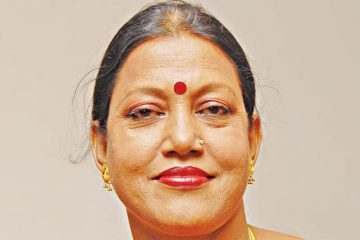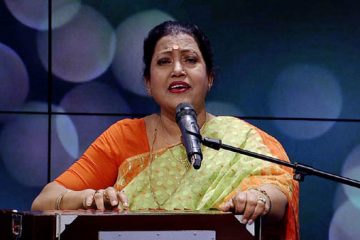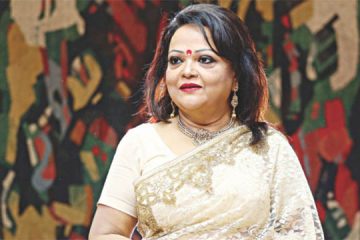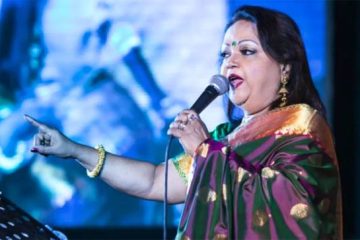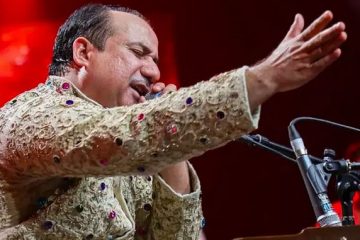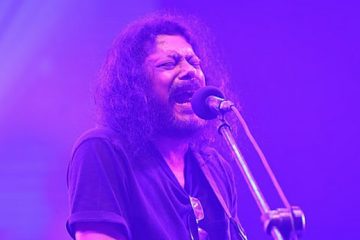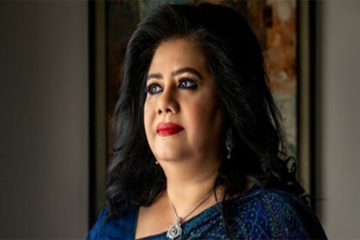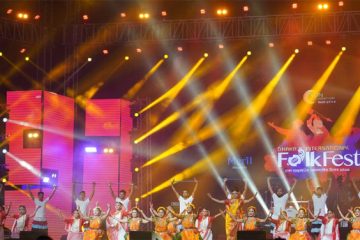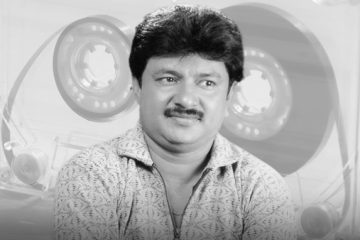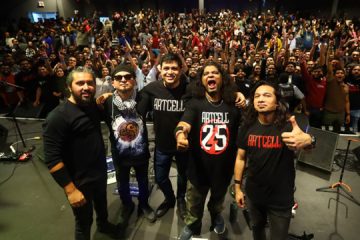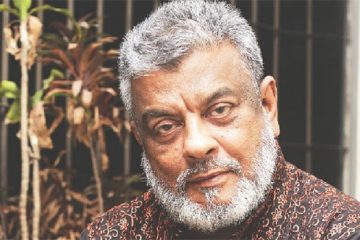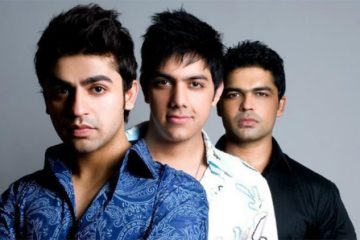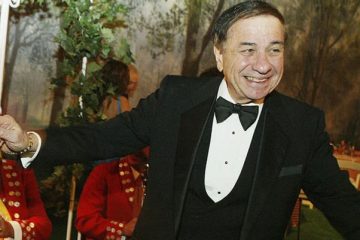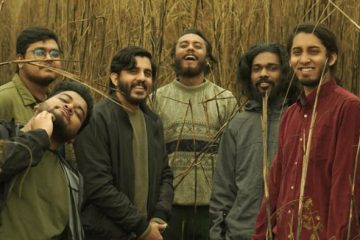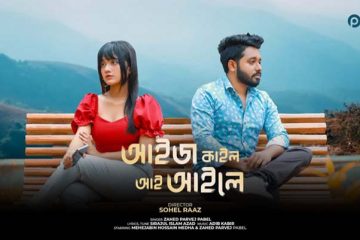Adda with up and coming singers
 Some emerging singers had their exposure through the talent hunts — “Close Up 1” and “Shera Konthho”, while others established themselves after years of training. Each of them has individual solo albums in the market, while stage shows are a part of their regular routine.
Some emerging singers had their exposure through the talent hunts — “Close Up 1” and “Shera Konthho”, while others established themselves after years of training. Each of them has individual solo albums in the market, while stage shows are a part of their regular routine.
Jhilik claimed the top spot in “Shera Konthho”, while Mahmud Sunny and Belal Khan have built their reputations as music directors, as well as singers. Singers Arnik, Shoshi and Puja have all earned popularity. Meanwhile Raisa is leading the race among the newcomers. These seven singers recently came to The Daily Star (TDS) office at a lively adda.
TDS: What are your aspirations for 2013 and what do you expect to give your fans this year?
Shoshi: I want to brighten up the image of my country through singing. I also want to sing more patriotic songs this year. At the start of the new year, my hope is to see my country prosper in every field, and its people happy.
Jhilik: Firstly, I want to sing better songs. Along with my originals, I also want to fulfill my responsibilities by singing patriotic songs that will inspire patriotism among the listeners. This is not just a new year’s resolution.
Arnik: My expectation from the new year is for everyone to respect laws of the country. The root of our problems is the tendency to break rules. The people of the country will have to be more aware; only then will change be possible. I want to perform quality songs, especially patriotic ones. I also plan to do something for underprivileged children in the country. Whenever I get the time and opportunity, I will take the necessary initiatives.
Belal Khan: I have two projects at hand, with the new year against the backdrop. The first project is to bring out an album of patriotic songs, where I will be able to sing my heart out. The second project involves an organisation we have set up, which includes students who came from villages to study at Dhaka University. Under the banner of that organisation, we want to do some social service in the rural areas. No final decision has yet been made, but we want to work for those in need.
Mahmud Sunny: My hopes for the new year include offering a different genre of music to the audience. Listeners will get something fresh. Since I additionally work as a music director, I plan on introducing some new talented voices. I also wish the best for my country. I want to work for my country and offer new patriotic songs as gifts to my country.
Puja: My hope is to see my country turn into a true ‘Shonar Bangla’. We can all undertake a united effort to steer the country forward. For the new year, I also want to give the country some new songs from the heart, along with patriotic songs. If I ever get the opportunity, I would be happy to contribute in serving my country.
Raisa: I want our country’s image to brighten up in the new year. At the beginning of the new year, I want to sing at least one song which will stay embedded in the minds of listeners. I will definitely sing patriotic songs in the new year. If I can help the country through some social service, I’m up for the task.
TDS: What is the biggest obstacle to good music?
Mahmud Sunny: The largest hurdle to overcome is the lack of media support. This is my personal opinion. Piracy is another challenge. Good songs are being composed, but those are not being aired sufficiently on the TV channels. So people remain in the dark about those songs.
Belal Khan: The better songs face more obstacles than average songs. Piracy is a huge headache for our audio industry.
Arnik: Any rookie artiste has to face lots of obstacles in the beginning. The challenges may come while releasing an audio album, or doing songs for a TV channel, or while doing a stage show. The troubles are in every phase. Every singer has to overcome those obstacles.
Shoshi: The biggest obstacle while doing good songs is the lack of support from all the sectors.
Puja: I feel that the lack of support from the TV channels is a big obstacle in recording good songs.
Raisa: The absence of interest from the audio companies is a huge challenge for recording good songs.
Jhilik: There are many obstacles in the path of recording good songs. Vulgar songs face less objection but when there is an album of good songs, the audio companies demand more commercial tracks.
TDS: Are popular songs not always good songs?
Arnik: In a good song, every aspect has to be good. There should be good lyrics, a message, a story.
Jhilik: Some songs are both popular and good, but those that are only popular can become nothing more. Any good song maintains its appeal throughout decades. The appeal of a song, which is just popular, is ephemeral.
Shoshi: I consider popular songs as the audio tracks that are filled with levity. Those popular numbers cannot stand the test of time, unlike the true classics.
Mahmud Sunny: There are many differences between just another popular number and a good song. Not everyone is an artiste capable of recording worthy audio tracks. A lot of people can bring out popular songs, but we all should aspire to be singers who offer good songs.
Belal Khan: I think a lot of dedication and practice is needed to produce a good song. That is not the case for bringing out a popular number. Good songs are what keep pure music alive.
Puja: I feel that everyone is chasing popular songs nowadays. Popularity is short-lived, but a classic can last a century.
Raisa: Singers can record good songs when they are properly trained, sing with dedication, and aspire to be true artistes. Artistes who seek only fame and money are the ones who chase popular numbers.
TDS: You are all busy with stage shows. Can you share any memorable experiences from your live performances?
Mahmud Sunny: Once I went to Cox’s Bazar to perform. On the stage I started singing “Nilanjona” with the lyrics printed on a page in front of me. However, a strong gust of wind blew the paper away, leaving me no choice but to make up words for the rest of the songs. Luckily the audience did not notice the blunder.
Belal Khan: Once I was singing “Pagol Tor Jonne Re Mon” at a programme at the Suhrawardy Udyan. During the song, a rickshawallah came up to me and offered me a Taka 100 note for my performance. Although I tried to decline, I had to accept his gift as everyone insisted on it. I framed that note for posterity.
Shoshi: I’ve had many fun moments on the stage. The last time I went to the US to do stage shows, a three-year-old came up to me and asked me to perform Rabindra Sangeet. The request was for the song “Tumi Kon Kanoner Phoo”. I will never forget that incident. It was both a fun and a memorable experience.
Jhilik: I have done many stage shows and have many stories to tell. However, it gives me the most pleasure when people request me to render original songs.
Courtesy of The Daily Star

